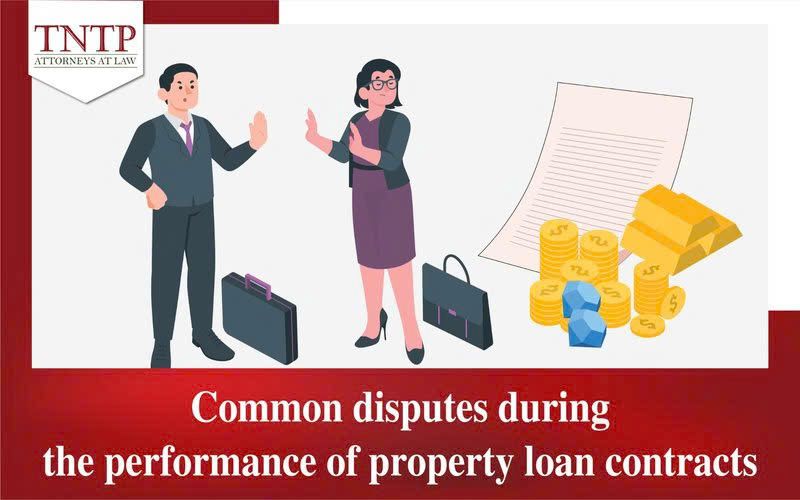Common disputes during the performance of property loan contracts

Property loan contracts are frequently entered into by individuals and organisations seeking to address urgent financial needs or to mobilise capital for production and business operations. However, due to insufficient due diligence or excessive reliance on the counterparty, disputes often arise during contract performance. In this article, TNTP provides an overview of common legal disputes and methods for effectively mitigating and resolving such issues.
1. What Constitutes a Dispute During the Performance of a Property Loan Contract?
According to Article 463 of the Civil Code 2015, a property loan contract is an agreement under which the lender delivers a property to the borrower. Upon maturity, the borrower is obligated to return a property of the same type, quantity, and quality to the lender, and to pay interest only if such obligation is agreed upon or provided by law.
While current legislation does not specifically define disputes arising during contract performance, these may be broadly understood as conflicts or disagreements concerning the exercise of rights and fulfilment of obligations between the parties while executing the contract.
2. Common Types of Disputes in Property Loan Contracts
Some disputes arising during the performance of the property loan contract include:
(1) Disputes related to principal debt and interest rates: Typically, the borrower fails to return the principal debt and interest within the agreed period.
(2) Disputes concerning the validity of contracts: Contracts may be rendered invalid due to being fictitious or executed by individuals lacking legal capacity or proper authorisation.
(3) Disputes related to the interpretation of the contract: This dispute often arises when the parties agree to and establish multiple documents. For example, the parties agree on interest rates in a document independent of the loan contract.
(4) Disputes related to security measures for performing obligations: During the contract, the parties may agree to establish measures such as pledges, mortgages, or guarantees to secure debt repayment obligations. Disputes may arise if the securing party lacks ownership rights or where there is disagreement over asset disposition following a repayment default.
(5) Other disputes: These may include agreements that contravene legal provisions – for example, interest rates exceeding the statutory cap under Article 468 of the 2015 Civil Code.
3. Methods for Resolving Disputes Arising from Property Loan Contracts
To protect their legitimate rights and interests, parties may pursue the following dispute resolution mechanisms:
• Negotiation: A party may request the other party to fulfil obligations or renegotiate terms such as repayment schedules and interest rates. It is advisable to document negotiation outcomes through written confirmations, commitments, or debt acknowledgement minutes.
• Mediation: Unlike negotiation, mediation involves the participation of an independent third party who helps the parties agree and resolve conflicts. In such cases, the mediation outcome should also be documented in writing as the basis for requesting the other party to perform obligations.
• Litigation or Arbitration: The parties may initiate a lawsuit in a competent Court or Arbitration, submit relevant documents and evidence to request the Court or Arbitration to issue a Judgment/Decision/Award to protect their rights and interests.
4. Best Practices to Minimise Legal Risks in Contract Performance
To minimise the possibility of disputes, the parties may take the following measures:
• Establish a loan contract in writing, notarise the contract or have the certification of witnesses;
• Ensure the contract stipulates all essential terms, including the loan amount, interest rate, repayment timeline, and remedies for breach;
• Maintain written records of property transfer and repayment transactions;
• Where security interests are involved, ensure proper registration with the competent authority to establish legal effect and enforceability.
This is the content of the article “Common disputes during the performance of property loan contracts”. We hope this article is helpful to readers interested in this topic.
Best regards,



